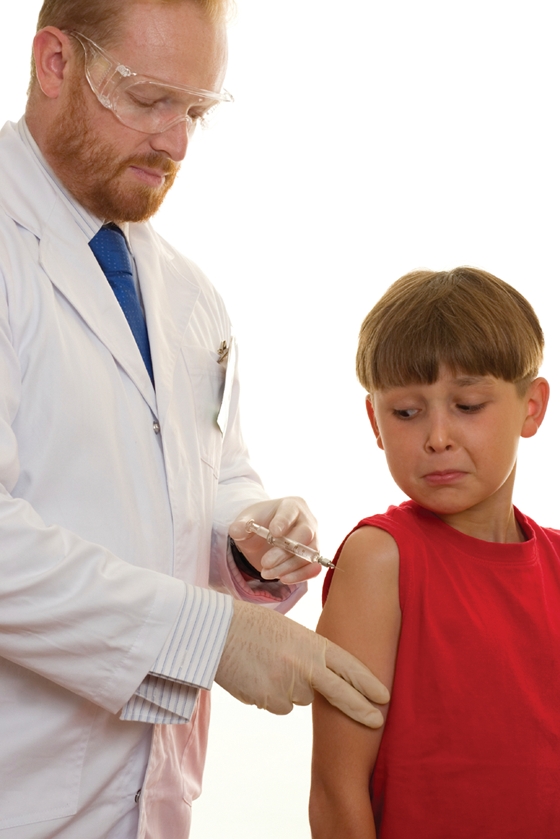As the authors of a controversial study that linked the measles, mumps and rubella (MMR) vaccine and autism fend off allegations of professional misconduct, debate over the study's impact on immunization rates continues to rage in Canada.
The hard evidence, though, remains elusive as officials say Canada's tracking system is too woefully inadequate to accurately ascertain the controversy's effect in Canada.
Many immunologists and public health experts believe the study triggered a worldwide decline in the number of children receiving the vaccine (Lancet 1998;351:634-41, removed online). In the United Kingdom, coverage rates for the vaccine dropped to 75%.
There are little empirical data of a similar decline in Canada. The Public Health Agency of Canada (PHAC) reported in the 2006 National Immunization Survey that approximately 91% of Canadian children had received the MMR vaccine. That rate was only slightly lower than the 94% coverage projected in 1997.
That suggests that coverage rates for the vaccine haven't been impacted and that parents haven't stopped doctors from administering the vaccine, says Mahnaz Farhang Mehr, chief of immunization programs for PHAC. “But it probably ... affected parent's confidence in the vaccine.”
Public concern about an MMR–autism link resurfaced this summer after the UK General Medical Council announced it would hold hearings into allegations of professional misconduct against Dr. Andrew Wakefield, Professor John Walker-Smith and Professor Simon Murch, 3 of the original authors of the Lancet study. Subsequent clinical studies have since failed to confirm the findings. In 2004, 10 of the 12 experts who collaborated with Wakefield retracted the study.
Now before the UK General Medical Council are such alleged ethical breaches as paying children at birthday parties to provide blood samples, and failing to inform the Lancet that Wakefield was advising lawyers who were representing parents who believed their children were adversely affected by the vaccine.
Although the study's findings have been widely discredited, immunologists and public health officials remain concerned.
“Right now, nobody is able to document or trace the true impact of the MMR study,” says Mary Appleton, the senior manager for the Canadian Coalition for Immunization Awareness and Promotion. “Our registration system is simply insufficient.”
In Canada and the United States, the health care systems get data on immunization coverage rates from a variety of sources including patient records. However, national surveys in each country rely most heavily on public opinion survey methodology to come up with coverage rate estimates, an approach that many in the field believe is little more than an educated guess.
Among Canadian provinces, only Manitoba has a formal system in place that requires physicians to record in a province-wide registry every immunization administered, Fahrang Mehr said. Without a national registry, it is impossible to determine with absolute certainty what kind of “uptake” there has been on all the major childhood vaccines (CMAJ 2007:176[13]:1811-3).
A widely cited 2006 study found that less than 70% of Canadian 2-year-olds received their full range of vaccines (Pediatrics 2006;117:595-602). The result was especially troubling given the fact these children had, on average, visited a physician 19 times.
Dr. Joanne Embree, the head of pediatric infectious diseases at the University of Manitoba, says there is widespread concern the lack of specific data, and poor vaccine coverage, is a by-product of the difficulty many Canadians have in finding a regular family doctor or pediatrician.
Embree says parents who rely heavily on walk-in clinics for their health care needs often slip through the cracks of the system. They only approach a physician when their children have a specific health problem, and the subject of whether vaccines are up to date never arises, she adds. “If you do not have a family doctor then you likely don't have someone to remind you to get your vaccines on time.”
The shortage of family doctors is also depriving the health care system of much-needed data on how many parents refuse to allow their children to be vaccinated, Embree adds. Almost all family physicians and pediatricians can anecdotally reference families that decline certain vaccines. — Dan Lett, Winnipeg

Figure. Data on immunization rates in Canada are suspect in the absence of a national registry. Photo by: Leah-Anne Thompson / iStockphoto


